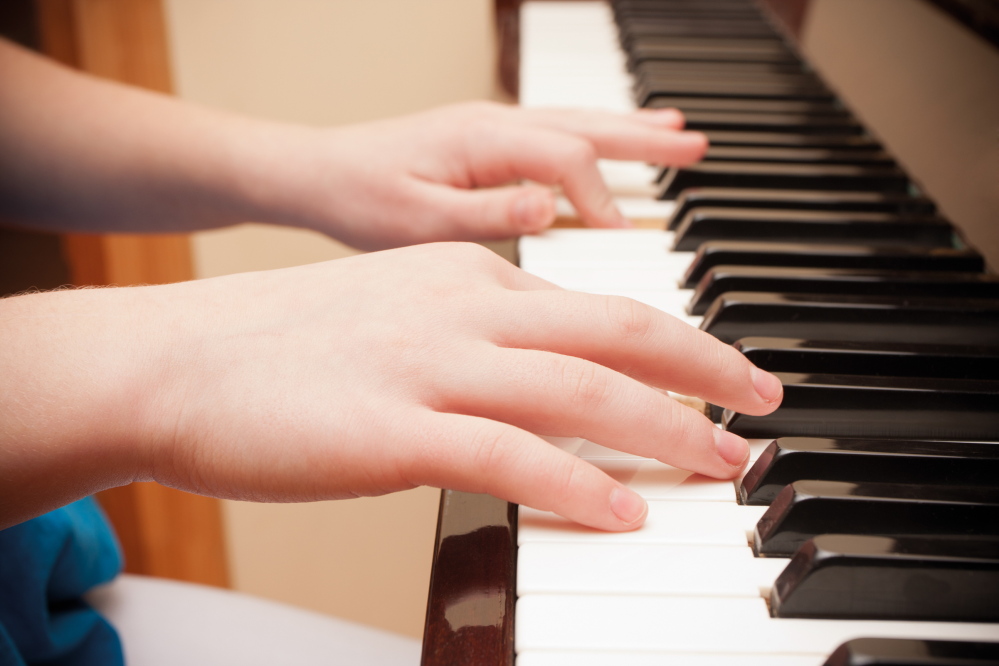Children get plenty of benefits from music lessons: Learning to play an instrument can be a great outlet for a child’s creativity, and the repeated practice can teach much-needed focus and discipline. What’s more, the payoff, whether it’s learning a new song or just mastering a new chord, is often a boost of self-esteem.
But Harvard researchers now say that one oft-cited benefit – that studying music improves intelligence – is a myth.
Though it has been embraced by everyone from advocates for arts education to parents hoping to encourage their kids to stick with piano lessons, a pair of studies found no effect of music training on the cognitive abilities of young children.
“More than 80 percent of American adults think that music improves children’s grades or intelligence,” Samuel Mehr, a Harvard graduate student who is lead author of the studies, said. “But there is very little evidence supporting the idea that music classes enhance children’s cognitive development.”
The notion that music training can make someone smarter, Mehr said, can largely be traced to a single study published in the journal Nature. In it, researchers identified what they called the “Mozart effect”: After listening to music, test subjects performed better on spatial tasks.
Though the study was later debunked, the notion that simply listening to music could make someone smarter became firmly embedded in the public imagination.
Though dozens of studies have explored whether and how music and cognitive skills might be connected, Mehr and colleagues found just five studies that used randomized trials. Only one showed an unambiguously positive effect, and it was so small that it was barely enough to be statistically significant.
To explore the connection between music and cognition, Mehr and colleagues recruited 29 parents and 4-year-old children. After initial vocabulary tests for the children and music aptitude tests for the parents, each were randomly assigned to one of two classes — one where they would receive music training, or another that focused on visual arts.
While both groups performed comparably on the vocabulary and number estimation tasks, children who received music training performed slightly better at one spatial task; those who received visual arts training performed better at the other.
To replicate the effect, Mehr and colleagues designed a second study that recruited 45 parents and children. Again there was no evidence that music training offered any cognitive benefit.
— — —
This report is from Michigan State University:
Being in a classroom full of “the best and brightest” students may not help marginal ones, according to new research that contradicts popular theory. The study shows that students in a middle school gifted and talented program performed no better on national tests than a similar group of students who didn’t qualify for the program.
“This paper is part of a growing body of literature suggesting that just because you have stronger peers doesn’t necessarily mean you are going to perform better,” says Scott Imberman, associate professor of economics and education at Michigan State University.
Gifted and talented programs have grown in popularity, with more than 3 million students now enrolled nationwide.
Using a sample of more than 14,000 fifth-graders in an urban school district, researchers analyzed students’ standardized test scores in math, science, reading, social studies and language arts.
The study targeted a group of children who qualified for a gifted and talented program by barely meeting a certain threshold based on past academic performance. Their test scores were compared to the students who just missed meeting the threshold — in other words, students who were very similar academically. The marginal students in the gifted and talented program showed no improvement in test scores over the non-qualifying students in any of the five subjects.
The study also looked at gifted and talented students who were picked in a lottery for a “magnet” program, which emphasizes a more intensive, specialized curriculum.
The researchers compared test scores of the magnet students who won the lottery to the gifted and talented students who lost the lottery and found no significant difference in four of the five subjects: math, reading, social studies and language arts. The magnet students did show improvement in science.
Send questions/comments to the editors.



Success. Please wait for the page to reload. If the page does not reload within 5 seconds, please refresh the page.
Enter your email and password to access comments.
Hi, to comment on stories you must . This profile is in addition to your subscription and website login.
Already have a commenting profile? .
Invalid username/password.
Please check your email to confirm and complete your registration.
Only subscribers are eligible to post comments. Please subscribe or login first for digital access. Here’s why.
Use the form below to reset your password. When you've submitted your account email, we will send an email with a reset code.